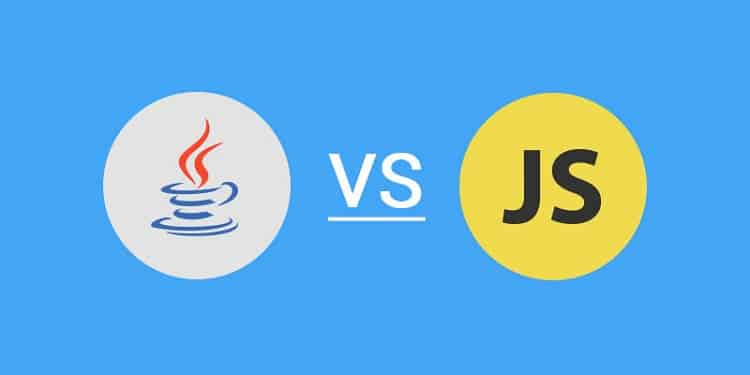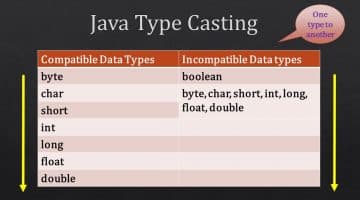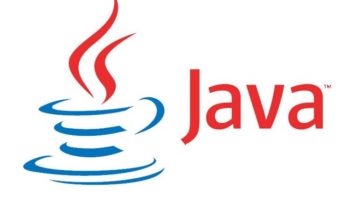Java and JavaScript are two of the most popular programming languages in the world. There are unlimited freelance jobs available on both of them. There are many who think that JavaScript and Java are quite similar and related. Well, the only thing common between the two is the word ‘Java’ and the rest are all different. JavaScript(JS) is a client-side scripting language developed by Netscape whereas Java is a server-side programming language developed by Sun Microsystems. It is true that JavaScript is capable of server-side programming and has an object-oriented approach but it is mostly used for client-side programming and embedded into HTML. Similarly, Java can be used in client-side programming as in Java applet but it is mostly used in back-end development. Before you can hire freelancers to serve your requirements or before you learn any of these technologies, you need to understand the difference between these two major programming languages.
Java Vs Javascript – Major Differences
The original name of JavaScript was ECMAScript. But Netscape changed it to JavaScript after Java started to become popular. JavaScript cannot create stand-alone applications like Java and it requires HTML document for embedding and displaying outputs. Java is distributed by its compiled bytecode whereas JavaScript is distributed by its source code.
Implementation – Java is a compiled programming language which means code written with Java language is compiled into class files having bytecode and then it runs on a virtual machine. Java is considered platform independent but for every platform to run java code, it must have Java virtual machine. On the other hand, JavaScript is an interpreted language which means it requires an interpreter which is generally present in the web browser where it is run. It is considered browser independent but if the browser does not have JS interpreter, JavaScript will not work. Furthermore, different interpreters of web browsers have certain different interpretations which lead to different results in different browsers.
Checking – Java follows static-type checking where the checking for the variable type is done during the compilation. This means the variable type mentioned by the programmer is defined during the compilation and hence, the variable will be able to take a value of that defined type only otherwise, it will lead to a run-time exception. JavaScript is a dynamic-typed language which means any variable defined in JavaScript can take a value of any type like Numeric, String, Boolean.
Even though dynamic-typed checking provides a wider scope, static-typed checking is more specific and hence, errors can be detected and handled easily. To summarize, Java is a high-level, static, and strongly-typed programming language whereas JavaScript is a text-based, dynamic, and weakly typed scripting language.
Inheritance – Inheritance is a technical term whereby a property of something can be transferred to another thing. In Java, inheritance is class-based and it follows a top-down hierarchy. This means the property of a class can be inherited by an instance or member of that class only. On the other hand, in JavaScript, any object can inherit the properties of another object directly using a construction function.
Execution Of Instruction – Java opens up multiple threads to execute multiple instructions in parallel whereas JavaScript maintains one main threat and instructions are executed in a queue one by one. JavaScript does not support multi-threading. For small applications, the difference in speed of execution may not be noticeable but in large applications, Java will be faster.
Variable Scope – Java has block-based scope for variables which means a variable is valid as long as it is within the block of code where it is defined. JavaScript follows function-based scope which means a variable is valid within the function it is defined. Even if there is a global variable with the same name, the preference is given to the local variable within the function.
Applications – JavaScript is restricted to web and app development world with HTML and CSS and front-end technologies like jQuery and Angular JS. Java is everywhere starting from the Android operating system, enterprise software, stand-alone desktop application to programming hardware, scientific computing to server-side technologies like Apache, JBoss, GlassFish etc.
Apart from these major fundamental differences, there are various technical differences that both the languages possess. For example, JS can simulate anonymous class which is absent in Java, Java constructors are special functions but JS constructors are just standard functions, Java has implicit scope for class and non-static methods whereas JS has an implicit global scope.
JavaScript is relatively easy to learn as the syntax and functions are limited in comparison to Java. That is why most of the beginners are attracted to JavaScript and there is a tight competition for freelance jobs on JavaScript. Java opens up unlimited possibilities due to its vastness. Hence, when you hire freelancers to do your required work, make sure he has expertise in that specific part of Java which is required to solve your project.




